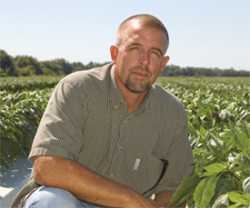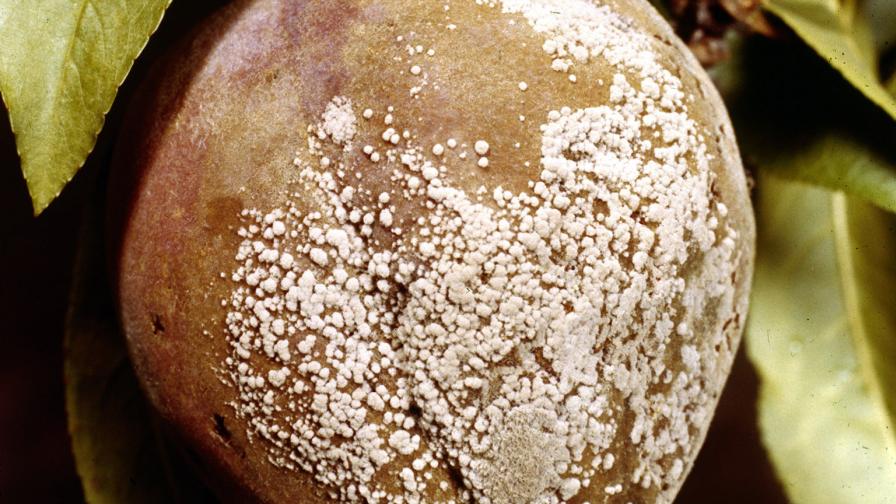Putting Experience Into Practice

Some would call the phrase “life throws you a few curve balls” cliché, but not Skeeter Bethea. He has faced down more than a few, including life-threatening disease. He is a survivor, who has found the right home with Weirs-Turner Farms where his vegetable production system is now in place with the full support of the owners.
From working with his dad at an early age, Bethea went on to work at a number of large farms in the Immokalee area before joining Weirs-Turner Farms just north of Sarasota. All along the way, he was developing a production system that grew out of the building blocks of his experience.
“I took my first farm manager position at 26 growing green beans and tomatoes,” says Bethea. “That was the first time I had planted beans and it was on sand, which really wasn’t being done at that time. But, we made some great yields with good quality.”
Life Lessons
In 2006, Bethea had an opportunity to put his previous experience to work north of Immokalee with Weirs-Turner Farms. Owner Brian Turner made an offer allowing Bethea to run the production system his way.
“It so happened that Brian came down to Immokalee to visit while I was working with a buddy on a 100-acre organic farm,” says Bethea. “The organic deal was a lot of fun. It was on land that hadn’t been farmed since the mid-50s, so we had to do all land preparation, clearing, and leveling. When Brian came down to discuss the job offer, that organic crop was as pretty as anybody’s crop around.”
Bethea observed something in the organic crops that he had missed in previous conventional systems. The quality of the organic fruit seemed to be better with less bruising and bacteria problems than in some conventional systems. He attributes this to healthy soil, which translates into healthier plants.
Because of that experience, his current vegetable production program is a blend of organic and conventional techniques. It starts with his fertility program that is half organic and half conventional. The organic fertilizer is Micro-Start 4-2-3.
“The organic fertilizer helps build up the soil and it doesn’t leech as much as conventional fertilizer,” says Bethea. “A lot of these fields we plant on are pure beach sand, so blending in these organic fertilizers are building up our CECs and actually making a better piece of dirt out of it. If we take a raw piece of land that has been conventionally farmed forever, within three years of our program, you can tell a big difference with much more consistency in the soil.”
Bethea believes plant health can’t be overlooked in his approach. He has used Employ (Harpin protein, Plant Health Care Inc.), which he says reduces bruising in his pepper crop and has resulted in larger fruit.
“I found that by using Employ earlier and at certain critical stages we’ve gotten better disease resistance, more flowers, and bigger fruit,” he says.
His approach to insect control also includes a mix of organic and conventional products. Whiteflies, thrips, and pepper weevils are the biggest challenges in their major vegetable crops, which include tomatoes, peppers, cucumbers, and watermelon.
“Our base control program for whitefly is neem oil and soap,” says Bethea. “We stick to these softer products as much as possible to keep the beneficial insects working for us and to avoid flaring up other pests. Last spring, we only went outside our base program five times.”
Pepper weevils are probably one of the biggest insect challenges on the farm. Bethea jokes the best way to kill them is, “between two bricks.” The base program for the weevil includes another organic product, Diatomaceous earth.
Worm control is provided by Coragen (rynaxypyr, Dupont Crop Protection) that is applied through the drip tape.
“Integrated pest management is the key to our program,” says Bethea. “For example, we hardly ever have to spray for aphids, because we keep good populations of Ladybugs in the field to suppress the aphids.”
Buttoned Up
When Bethea joined Weirs-Turner Farms there were about 200 acres of vegetables in production on the farm. This fall’s crop is 750 acres, with about 1,800 acres of land in cultivation over the course of the year. The farm has some form of crop in the ground every week of the year. The fall high-value crops will begin harvest in mid-October and run through the middle of January.
With so many moving parts across seven farm locations, Bethea works from a highly detailed work plan. It all starts with large desktop calendars, which Bethea uses to pencil out a timeline from pre-plant through harvest. The data is then computerized and put into a binder, which stays with Bethea at all times.
Bethea has a core team of six management members, which meets every morning an hour before the rest of the crew arrives to go over the day’s game plan.
“I view it like football and I am the coach,” he says. “We work to have the right guys in the right place at the right time and to capitalize on their strengths. Everybody has very specific job description sheets, so everybody is on the same page about whose job is what.
“Every step is a critical building block in turning out quality yields in a cost-efficient manner. We’ve built this program through years of experience and tweaking it to make it better every year. There are many reasons that we run the program the way we do, and it all is done with an eye for a high level of detail and accuracy.”
Bethea’s high intensity approach pays off in yield and quality. Their average yield goal for peppers is 1,650 boxes per acre, tomatoes 1,800 boxes, and cucumbers 1,200 boxes.
Going Wireless
According to Bethea, every little gain in efficiency can either improve production or add more dollars back per box of produce. On one of the seven Weirs-Turner Farms locations, Bethea is currently testing a weather/moisture monitoring system from Praxsoft. In addition to weather monitoring, the system utilizes soil moisture sensors that are placed in the fields. Data is wireless beamed from the sensors to the weather station which is then sent to a command center hosted on a website. Bethea says eventually the system will allow him to control irrigation needs on every farm from anywhere — most likely the laptop in his truck.










